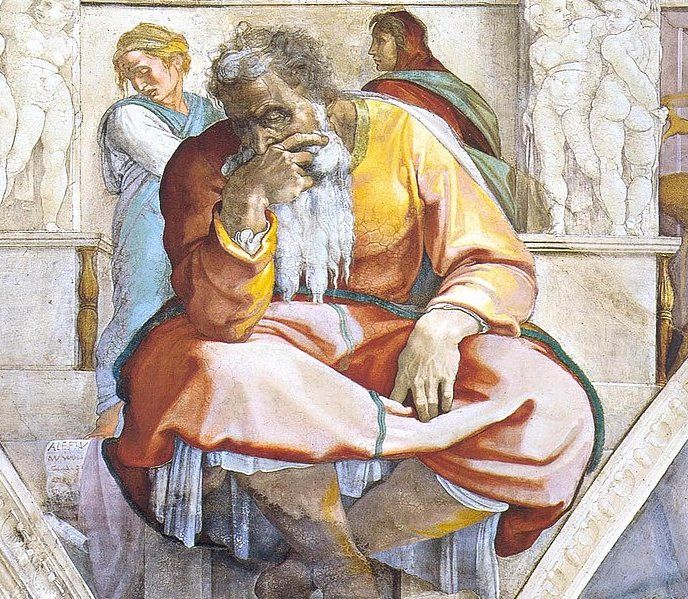Father of Israel,
Forgive all that in each of us
Is unprepared for Christ’s coming:
Our insensitivity to others;
Our ignoring the stranger;
Our lack of attention to Your Word.
Amen.
Prayer by David Adams from
Celtic Daily Prayer: Prayers and Readings from the Northumbria Community. (New York: Harper Collins Publishers, 2002), 772.
God, through the prophet Jeremiah, was trying to put the Judeans back together too. They had lost love of God and love of neighbor, trusting that God would hold up God’s end of the Covenant even while they failed to do so. Prophet after prophet had warned that this was not going to work out for them, but they did not listen to what God wanted, but continued to do what they wanted.
When God needs people to really listen and to learn new ways, God makes space for that. After Moses led the people out of slavery in Egypt, they spent 40 years in the wilderness learning how to leave behind the economy of Egypt and to live in God’s economy. Many of the people died in the wilderness. Thos who were not able to learn new ways did not survive. Now, in Jeremiah, something similar is happening. The people of God are losing their land, and being sent into exile in Babylon. Three different deportations occur in the book. In exile, the people will live for 70 years before some of them return home. And many will never return, but will die in Babylon or in exile call a new place home. In exile, they are called to learn how to be God’s people again.
It's hard to imagine this task. They were taken into exile, probably in chains or some sort of equivalent. They arrived in a land that was completely unfamiliar to them with nothing much other than what they were wearing. They were probably hungry and thirsty. They were grieving the loss of friends and neighbors and loved ones who had died in the siege. They were grieving the loss of their homes and possessions. So, one might imagine that they were not feeling very friendly toward the Babylonians.
But Jeremiah tells them in chapter 29 to plant roots, to not resist being in Babylon, to carry on their lives and to come to terms with their situation. They are to build homes, take wives, have children. And they are to “seek the peace and prosperity of the city” where God has taken them. Those people who drug them out from their homes and brought them into a new land. Those people who flattened their city. Those people who killed their neighbors and friends and loved ones. God was calling them to seek the peace and prosperity of these people because in the peace and prosperity of the Babylonian people was their own peace and prosperity.
God promises them a future with hope; “plans to prosper you and not harm you, plans to give you hope and a future” (Jer. 29:11). “Then [after they seek the peace and prosperity of the city] you will call upon me and come and pray to me, and I will listen to you.
You will seek and find me when you seek me with all your heart” (Jer. 29:12-13).
The “repair” of the people required a complete overhaul of their priorities and assumptions. The only way to be restored, to have the pieces put back together, was to return fully to God.
We come to the communion table this Sunday, and hear the words “Christ’s body broken for you, Christ’s blood shed for you.” Are you ready? In preparation for these words, and for acknowledgement of the price paid for your restoration, how is your heart? What repair do you need to find and enter into the restoration of God, and the future of hope that God has prepared? What neighbors, enemies even, need us to seek their peace and prosperity?

